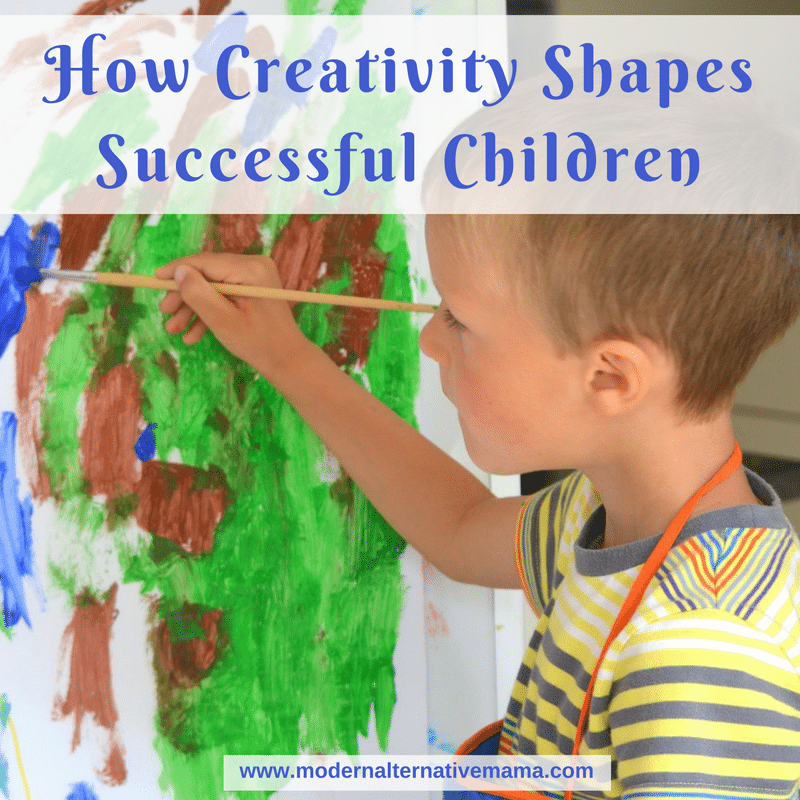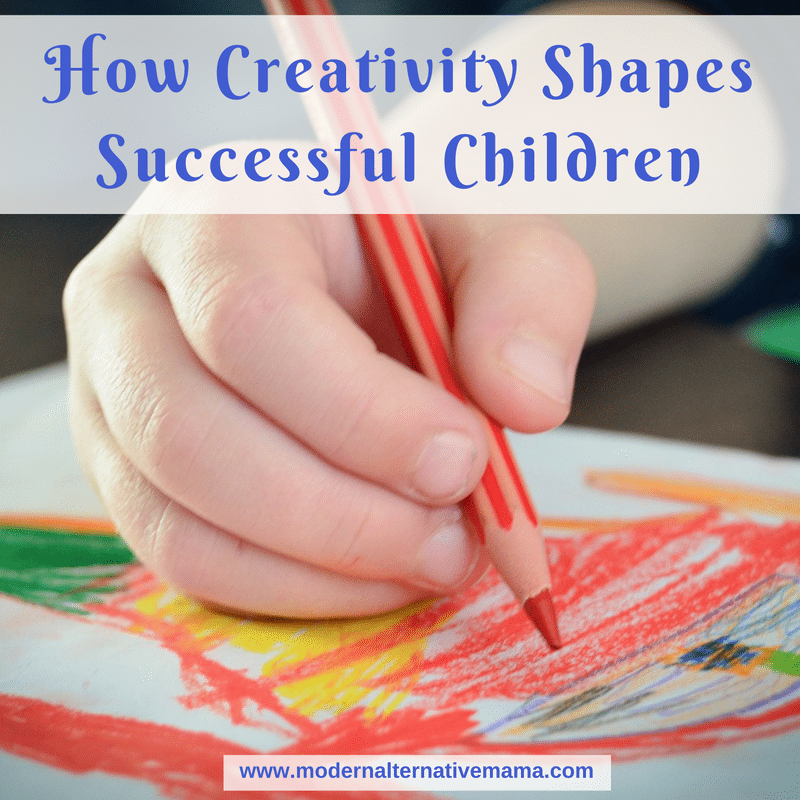How much time do your children spend dabbling in the arts—to freely express themselves in a creative manner? Creativity is the ability to think in unusual, divergent ways. It does not only refer to artistic and musical expression; it is also crucial for science, math, and social/emotional intelligence.
Creativity has been shown to develop so many positive characteristics in our children and to help them lead happy successful lives. Unfortunately, creativity is becoming somewhat endangered in this generation because technology and busy schedules are taking priority over the arts. Contributing writer, Sandi Schwartz, shows us how we can guide our children’s growth and impact their success by incorporating creativity into their daily routine.
Benefits of Creativity
When children grow up with opportunities to be creative, they can develop a number of key skills that will help them succeed throughout their lives.
Develop Problem Solving Skills
The arts help children learn how to think in innovative ways when making decisions and solving problems. Many experts find that creativity actually rewires the brain to think ‘outside of the box’, a very important skill for all aspects of life. When children are creative, they use intuition, imagination, and playfulness to think critically. Without even realizing it, children working on creative projects are being challenged to solve problems like what colors to use, how to draw a certain shape, and what size to make something.
If fact, researchers from the Michigan State University found a very strong correlation between childhood participation in the creative arts and measurable success later in life. Children who were exposed to a wide variety of arts and crafts were more likely to create unique inventions worthy of patents, come up with ideas to form a new business or publish informative papers on science and technology.
Express Emotions
Creativity also provides an outlet for children to safely and calmly express their emotions, sometimes without even speaking. When children have the capability to express emotions in this alternative manner, they can better manage challenging issues like anger, anxiety, and depression.
Improve Concentration
Creativity helps children learn to concentrate and focus more effectively on the task at hand, which is so important for academic studies and their future career. Artists can become so absorbed in their project that they actually reach a state of flow or the sense of being completely engaged in an activity to the point of being in a meditative state.
Persevere and Work Hard
Creativity helps children build patience and perseverance as they develop new skills and face frustration and setbacks. Art allows them to try different approaches until they are satisfied with their creation. Perseverance is a critical skill to have in an increasingly competitive world, where people need to continually adapt to changes and develop new skills.
Achieve Academic Awards
Children who participate in arts-based programs are more successful academically, according to a Stanford University study. Some of their achievements included being more likely to win an academic award such as the honor roll, to receive a community service award, and to participate in a math or science fair. These students also scored higher on the SAT.
Adopt a More Flexible and Worldly View
When children are exposed to the arts, they experience multiple cultures and ideas that they are not familiar with. This helps them learn to think with an open mind and realize that there are multiple points of view. A study at the University of Kansas found that during a visit to an art museum, students were more tolerant, exhibited more empathy, and developed an interest in art and cultural institutions.
Build Confidence
Children who are encouraged to think creatively tend to have higher self-esteem and confidence. One reason for this is because children learn to feel pride in their original work. Also, many types of art forms, like drama and dance, require individuals to build these attributes in order to perform in front of an audience.
How To Raise More Creative Children
You may be surprised to find out that creativity can be learned. It is not necessarily a natural talent that we are born with. Actually, there is so much that we can do to expose our children to opportunities for creativity so they can develop these amazing skills.
Here are 10 ideas to get your children excited about being creative:
- Sign them up for art, music, drama, or dance classes.
- Frequent creative performances such as concerts, theater, ballet, and art festivals.
- Keep a bin of art supplies in the house and ask them to use their imagination to create.
- Use art to teach science, math, reading, and other subjects like conservation.
- Invite your children into the kitchen to cook or bake with you.
- Include fun arts and crafts projects during playdates and birthday parties.
- Allow for plenty of artistic free play in your home, such as singing, dancing, puppet shows, and reading books aloud with expression.
- Point out interesting art all around you during your daily routine—while shopping, at parks, while traveling, at friends’ houses, and even at the doctor’s office. Talk to your children about what they observe.
- Study famous artists and their works by getting books out from the library or watching videos. Challenge your children to do their version of the famous artwork.
- Play games that involve creativity like Pictionary (drawing) and charades (drama) or make up your own like a songwriting or poetry contest.
Now that you have some ideas for activities to inspire creativity, it’s important to remember some guidelines to ensure that your children get the most out of their creative experiences.
- Keep it fun and relaxed for your children. Art is personal, and they should be able to create freely and not worry about staying in the lines or comparing their artwork to others.
- Give them the time and space to be able to express their creativity. It might be helpful to set aside a place in your home where your children are free to make a mess without worrying they will get in trouble.
- Encourage creative thinking in your home by asking your children for their ideas and resisting the urge to judge what they come up with. Also, let them disagree with you and encourage them to find more than one way to solve a problem.
- Allow them the freedom to explore their ideas. Avoid setting constraints, such as making them color in the lines or use certain materials because this can reduce flexibility in thinking.
- Limit screen time in order to make room for creative activities.








[…] How Creativity Shapes Successful Children […]
[…] around to dictate their activity, children have the freedom and flexibility to explore their own creative ideas. This experience leads to better problem-solving skills down the road. People who are able to solve […]